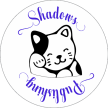Trees to Surf; Gnarled to Gnarly
Shakespearean literature to surfing slang, the path of language flows

I am not a fan of William Shakespeare’s writings. I have to admit; the guy added to our language through his use of the language. He’s credited with the first use of the word “gnarled” in 1604 in his play “Measure for Measure”.
“For every pelting, petty officer
Would use his heaven for thunder;
Nothing but thunder! Merciful Heaven,
Thou rather with thy sharp and sulphurous bolt
Split'st the unwedgeable and gnarled oak
Than the soft myrtle: but man, proud man,
Drest in a little brief authority,
Most ignorant of what he's most assured,
His glassy essence, like an angry ape,
Plays such fantastic tricks before high heaven
As make the angels weep; who, with our spleens,
Would all themselves laugh mortal.”
— Measure for Measure, Act II, Scene 2
Isabella, a chaste and pious woman, is arguing with Lord Angelo in defense of her brother. He's sentenced to death for having sex with his common-law wife and getting her pregnant. She doesn’t defend the crime; she is arguing for mercy.
Angelo has sentenced one man to death for sex outside marriage. He now presses Isabella into having sex with him on the promise of sparing her brother. Some things never change.
The Unbreakable Gnarl
Shakespeare’s use of gnarled was to invoke the image of an old, weathered and twisted tree. Hard to break into pieces. Gnarled’s often used to describe an older person who shows their age and the ravages of a hard life.
There is a beauty to gnarls. In nature, they’re usually formed when something has damaged a tree. The tree will reform around the wound almost protectively. The gnarls give the wound strength and character.
I have a tree in my yard I see when I look out my kitchen window. Years ago the tree split, one part falling on to my house and the other remained standing.
I’ve watched over the years as the tree's grown over the split. It’s still a gaping wound, but the growth has given the remaining tree strength.
Not All Gnarls Are Visible
Events in my life require mentally creating gnarls around gaping wounds. Like that tree, they never close. The gnarls around the edges of the wounds, they let the rest of life flow on around them.
Life will splash into the wounds and stir things up. The gnarls are there to help separate life from the wounds.
400 Years of Wordolution — Yep, I Made Up A Word
One thing I love about words is how they change over the years. Gnarled is still gnarled. It still means something that is knotty, misshaped or made rough by age or hard work.
From gnarled has come the word, gnarly. Gnarly has wound its way from Shakespeare to the American surfing culture of the 1970s.
The Emergence of the Surfing Culture
Surfing, or the riding of waves, goes back to the ancient Polynesians. Surfing culture was part of the culture by the time James Cook visited Hawaii on his first voyage. By tradition, the chief was the most skilled wave rider in the community.
The ruling class had the best beaches and the best boards. Commoners could gain access to those beaches and boards by demonstrating their skills. Surfing was not a recreational activity, extreme sport or career as it has evolved to. It was an art.
Then Europeans arrived with their Christian culture. They pressed Hawaiians to accept their way of life. Surfing had no place.
Surfing became popular again when wealthy American tourists arrived. They loved this new sport and wanted to learn. The locals rebuilt the surfing culture. They inverted the social structure, teaching the whites how to surf. Whites were now uncertain of their status in this borderland. In this emerging social and cultural identity. Around the world, where there are waves to ride, surfing culture now lives.
Surfing in the Twentieth Century
Hawaii, Australia and California were the go to spots of the best surfers. Surf culture became a world of its own, its fame growing after the feature “Gidget” was released in 1959.
By the 1960s, surfing became very popular with teenagers. Part of the surf culture saw individuals and groups claiming key surfing spots as their own. The skateboard developed to surf on land. The 1970s saw an emergence of hotdogging performance.
The Emergence of Surfer Slang
Slang gives a culture colour. Global differences add colour to surf slang. In Southern California, surfing slang comminglings with Valley speak. From that union we receive words like “dude”, “tubular”, “radical” and — “gnarly”.
A word used among surfers around the world is “stoked”. It’s a mixed feeling of anxiety and happiness toward breaking waves. We often associate surfers with being slackers or beach bums.
Many of those terms have entered our own lexicon.
Gnarly Surfer Slang
Gnarled trees merge into surfing lingo and comes out as gnarly. When applied to surfing, gnarly is a large, difficult and dangerous wave.
Which likely explains how the word spread out into varied meanings in our lexicon.
Gnarly is used to describe both good and bad events. Like most slang, it can mean different things to different people. A quick look at the Urban Dictionary shows some interesting perceptions of the word.
- “Gnarly is when you’ve gone beyond radical, beyond extreme, its balls out danger &/or perfection, and/or skill or all of that combined.”
- “Grotesque, yet awesome. ‘That scar’s fucking gnarly’”
- “Original from 70s surf speak to describe waves that are violently breaking without the form that would render them rideable. Can also describe less than ideal females.”
- “When a person or thing that was once beautiful or nice to look upon becomes altered losing the beauty it once had, no longer being desirable due to lack of maintenance.”
- “Off the hook, totally extreme — That was a gnarly wipe out!!!”
- “A word that is overused by the cast of the Laguna Beach. It means crazy, rad, totally ficking awesome.”
There is a common thread, though. A certain unbending strength forged in the act or appearance described.
“All living things are gnarly, in that they inevitably do things that are much more complex than one might have expected.” — Rudy Rucker
It seems Shakespeare’s rather obscure use of the word ‘gnarled’ has led the world on a winding, complex path. Emerging at a gnarly time.

Shadowspub is a writer from Ontario, Canada. She writes on a variety of subjects as she pursues her passion for learning. She also writes on other platforms.

She created Prompt A Day to share with others. You can subscribe to Prompt A Day for a set of ideas in your inbox every day.
About the Creator
ShadowsPub
ShadowsPub is a Canadian writer who writes on a variety of subjects as she explores her way through the world. She enjoys creating books like journals, notebooks, coloring books etc where she can use her creative skills.






Comments
There are no comments for this story
Be the first to respond and start the conversation.